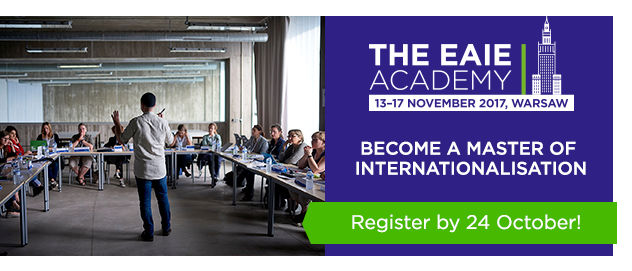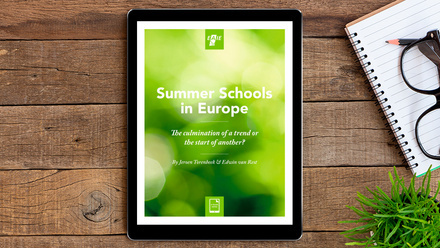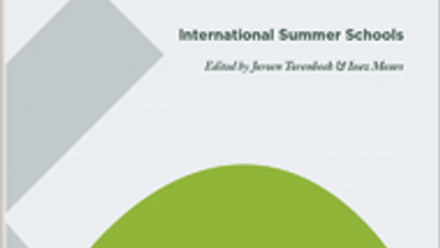Setting up a summer school: Where to start?
.jpg.jpg)
You have worked in internationalisation at a European university for several years and lately, you have noticed that a number of your partner universities are running summer schools or are in the process of setting them up. Where does this ‘summer school buzz’ come from? Is it worthwhile exploring the options for your university?
If you talk to anyone engaged in the organisation of a summer school, most will enthusiastically claim that a summer school is not only very beneficial for their universities and departments, but that there is actually a lot of fun to be had running it! So you decide to give it a go, but you understandably need some guidance…
First steps: gaining approval
Unfortunately, you will probably not be in a position where you can just go ahead and create something new. You will need to have someone’s approval to spend some time (money) on developing the summer school, and that involves convincing a superior of the benefits of a programme that does not exist, without knowing exactly where it will lead. Tricky…. but actually much easier than you think if you approach it in a logical, but perhaps slightly unusual way: consider the summer school as a solution to a problem, an answer to a question, an opportunity that cannot be missed.
Pinpoint your exact need
Could your university do with an additional flow of international students? Do your academic staff need some experience in dealing with an international audience? Is it difficult for your university to find new partners in certain parts of the world? Are the university’s housing facilities or classrooms empty for a few months in the summer? Does your university need extra funding?
For each and all of these challenges, (and more), running a summer school can be the easiest and quickest solution. Just keep in mind with which question you start out, and what would be most fitting for your university’s profile and strategy – not just on internationalisation but in general.
Do I need to write a policy paper first?
Please don’t take the usual approach and sit down behind your desk to write a brilliant policy paper. Go out and talk to people! Talk to the people you will need for creating a summer school programme, both academic and non-academic staff, and find out what they are looking for. In doing so, you will not only be sure to deliver something that is really feasible and appropriate. You will also create the goodwill and commitment from those who actually need to do the work.
Capitalise on your own skills
Bear in mind that you have something of high value on offer: you have international contacts, experience in what is needed for international students, and excellent organisational skills. All the barriers people might see in setting up a new international programme, you have them covered.
Who to approach for support?
Suppose you work at a university that is strong in the Social Sciences. You have excellent professors in this field, interesting academic programmes, and good facilities on or around campus. One of the things, however, that could be improved, is the number of international students in the department.
The first thing you do is decide with whom in the Social Sciences department you have a good relationship. Is that the Dean? Excellent, start right there. Is it an individual professor? Even better! They are the experts with whom you can discuss ideas for tempting summer school topics.
Together, you can decide whether a general course on European Cultures and Identities would be a good introduction for future Master’s students, or if a more specific course on Social Geography could be used to put in the university’s ‘shop window’ during the summer to promote the expertise present in that field.
What’s in it for them?
The academic staff can simply focus on the contents; they can select a field to which they feel the strongest commitment, creating a wonderful course and giving it their best teaching effort. And you can do all the rest for them (since that is where your expertise lies!): recruit students, deal with the application procedures, arrange housing for the students and develop a social programme. It’s very rare these days that academic staff are able to only focus on the academic content of a course without the need for back-to-back meetings and a heavy administrative burden with lots of paperwork. Only with the summer school can they rely on somebody else to take care of all the organisational aspects leaving them to do what they enjoy most!
Is it really that easy?
Since you have experience in the field of internationalisation, you know things are usually not as easy as they seem. But you also know a lot can be done that did not seem feasible initially. Don’t underestimate the value of your experience and expertise. You know what needs to be done to attract international students and to cater for them, academically and socially. You know the risks and ways to manage those risks.
And especially, don’t underestimate the need for your entrepreneurial skills. Running a summer school is like running your own shop within a big shopping mall (the university). You need to be creative and business savvy. And if you are setting up a summer school for the first time, please take note of the fact that your university will need some support in realising (mentally and practically) that the summer is no longer a time where business is slow. Who can better provide that support than you?
Do you have any tips or success stories which you would like to share regarding summer schools? Please post your comments below!
If you’re curious for more details on how to organise a summer school, in September the EAIE will publish a detailed manual containing everything you need to know about setting up and running a successful summer school. The publication, International summer schools forms the final instalment in the EAIE Professional Development Series and can be ordered from the EAIE website as of September. If you are an EAIE member, you will receive your copy at the EAIE Conference (or in the post if you are not attending).
Inez Meurs is an EAIE trainer, Director of the Business Community for the Utrecht Business School, the Netherlands and National Programme Manager for the OECD project on Assessment of Higher Education Learning Outcomes
Sign up for the upcoming EAIE Academy to learn more about the topic.




